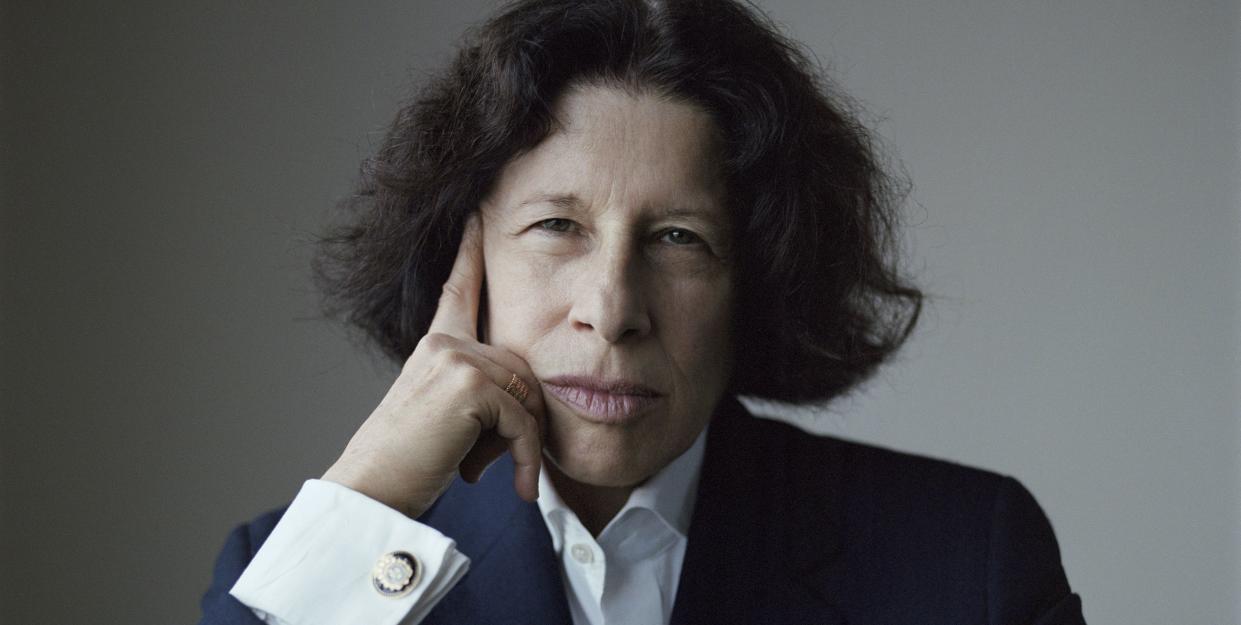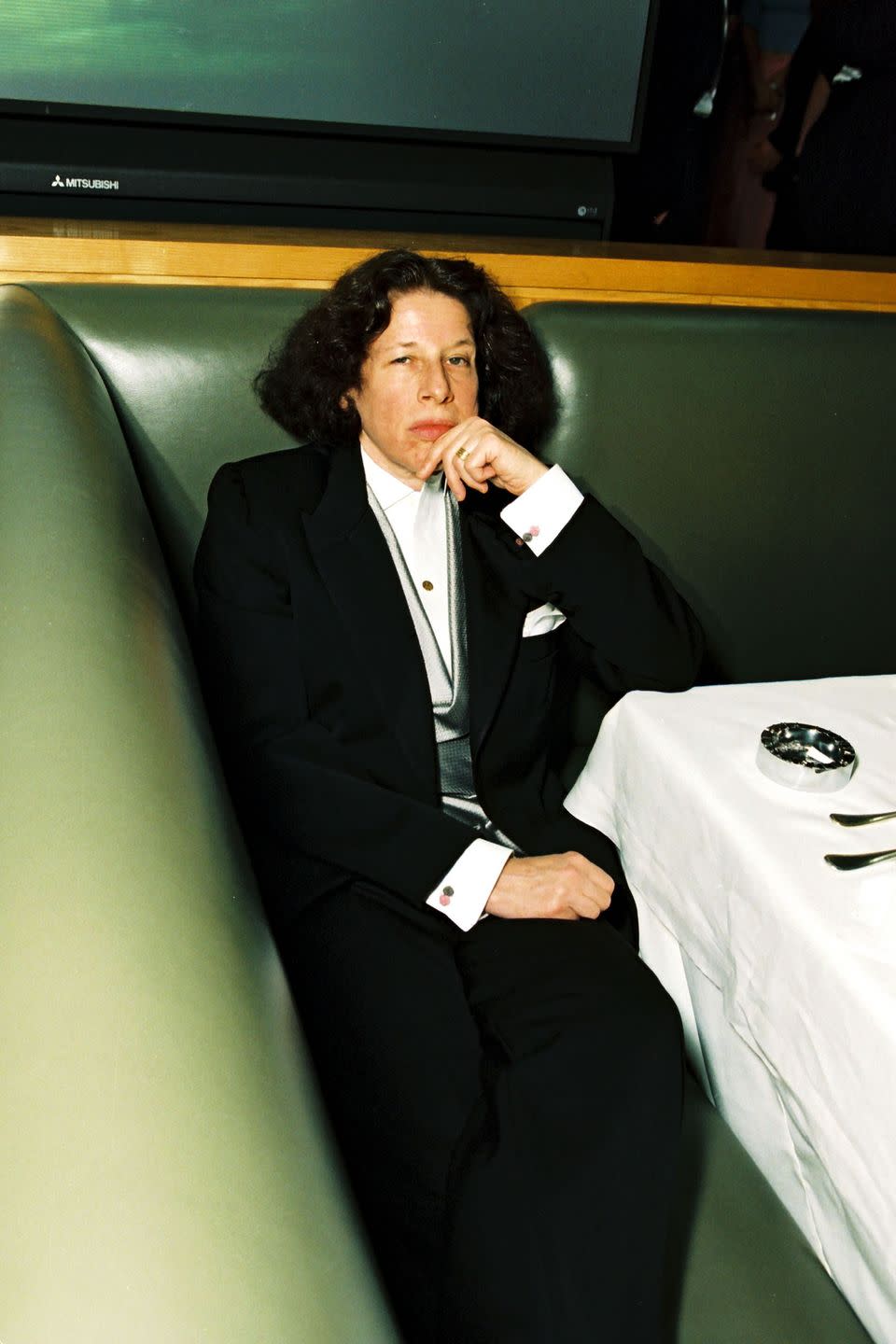Why Fran Lebowitz is everyone's favourite curmudgeon

When you call Fran Lebowitz’s home number, the first thing you hear is her answering machine message. It’s in an abrupt, long-suffering tone which is already tired of whatever you have to say. Then she picks up, interrupting her own voice, and for a brief, brilliant moment Lebowitz is in conversation with herself. The two disgruntled Frans on the other end of the phone make you wonder if Lebowitz – a woman expelled from her high-school for “unspecific surliness” – would even be annoyed by her own voice.
“I think that’s fair,” she replies. “But it’s not always unspecific you know, often it’s very specific surliness. I wouldn’t call myself a grumpy person, but I accept that everyone else does. If I ever got a positive Covid test – which I surely hope I don't – it would be maybe the first time anyone ever called to tell me I was positive.”
Writer, satirist, public speaker and sometime-actress, Fran Lebowitz’s distinct brand of surliness, unspecific or otherwise, has been the source of much of her appeal. The comic essays which first won her overnight fame, Metropolitan Life (1978) and Social Studies (1981), brim with a witty, sardonic elocution that she believes earned her the title ‘young curmudgeon’ when they were first released. They are now about to be published for the first time in the UK as The Fran Lebowitz Reader, spurred on, no doubt, by her recent pop culture renaissance in Netflix’s Emmy-nominated Pretend It’s a City.
“I guess more people watch TV than read,” she sighs, of the Martin Scorsese-directed docu-series about her. She is a woman who famously must move apartments to accommodate her 100,000-plus book collection and who doesn’t have a Netflix account, a laptop, or mobile phone for that matter. This appears to frustrate everyone… except Fran Lebowitz.
“People are always saying: ‘Fran, we can’t reach you, we can never reach you.’ But what am I? An emergency neurosurgeon? What’s so important?” She laughs, content with her luddite status: “I didn’t even buy a typewriter, and people want me to get a computer?” Don’t get her started on the internet.

“It's almost as if the entire world is now in junior high school,” she observes, of online outrage. “Why people would pick this time of life where most people are pretty unhappy, and just prolong it forever, is beyond me. These influencers and spats… the internet seems like one big teenager.” She says she isn’t afraid of being ‘cancelled’ and reserves a signature exasperated sigh for the whole idea. “I don’t have any power,” she says. “Why do you care what I think? No, I’m not afraid of that. I am going to Texas to speak soon, so, honestly, I’m more afraid of being shot.”
Her lack of digital identity does not remove her from an understanding of pop culture. She is a voracious reader who consumes books and newspapers to a gluttonous degree. She tells me she is aware of the Free Britney movement, despite not having too much of an understanding of who Britney is. “It sounds really unfair, what happened to her – we should definitely help her fix that,” she comments. “But I do find it odd that millions of people are furious about that, but no one seems as bothered by what’s happening to millions of women and girls in Afghanistan? That seems pretty important to me.”
It has often been said that Twitter is deprived of Lebowitz’s voice, one so epigrammatic in nature it was surely born for 140 characters. Indeed, her success on the public speaking circuit – where she has worked ever since her decades-long writing block kicked in – is mostly due to her love of being asked to give her opinion. She does, of course, have one on everything, from Trump to anti-vaxxers. “We should take all the unvaccinated people in America, give them to Jeff Bezos and let him take them into outer space and drop them off,” she says, in a tone perfectly suited to her brand of droll critique.
“I feel in general, forced to criticise things. If they were perfect, I wouldn't be criticising them,” she states, matter of factly. “Obviously, I would prefer to live in a world of perfection, or even frankly, one of competence, but that’s not the case. I am suspicious of people who say; ‘Everything’s great’. It’s not.”
Lebowitz spent the pandemic alone, at her own insistence, having turned down offers to lock down with wealthy friends at their Hamptons homes for fear of having to be “a good guest”. She describes herself as two women – one ardently social, the other ferociously solitary – two identities that were slightly in conflict when the pandemic began. “I did always think my entire life: wouldn't it be great if all I had to do was lie on the sofa and read?” she says. “And it turned out that, you know, it’s generally better to have a few other things to do, too.”
Now, she is preparing to go back out on tour, into a world slowly pulling itself out of a pandemic and one in which she is more of a pop-culture icon than ever before. Could this renewed attention, I ask, break her writing drought and bring about the publication of her long-awaited novel?
“I wouldn’t get too excited about that,” she says, with just the right amount of specific surliness.
Fran Lebowitz will tour the UK in Spring 2022. 'The Fran Lebowitz Reader' is published 2 September.
You Might Also Like


